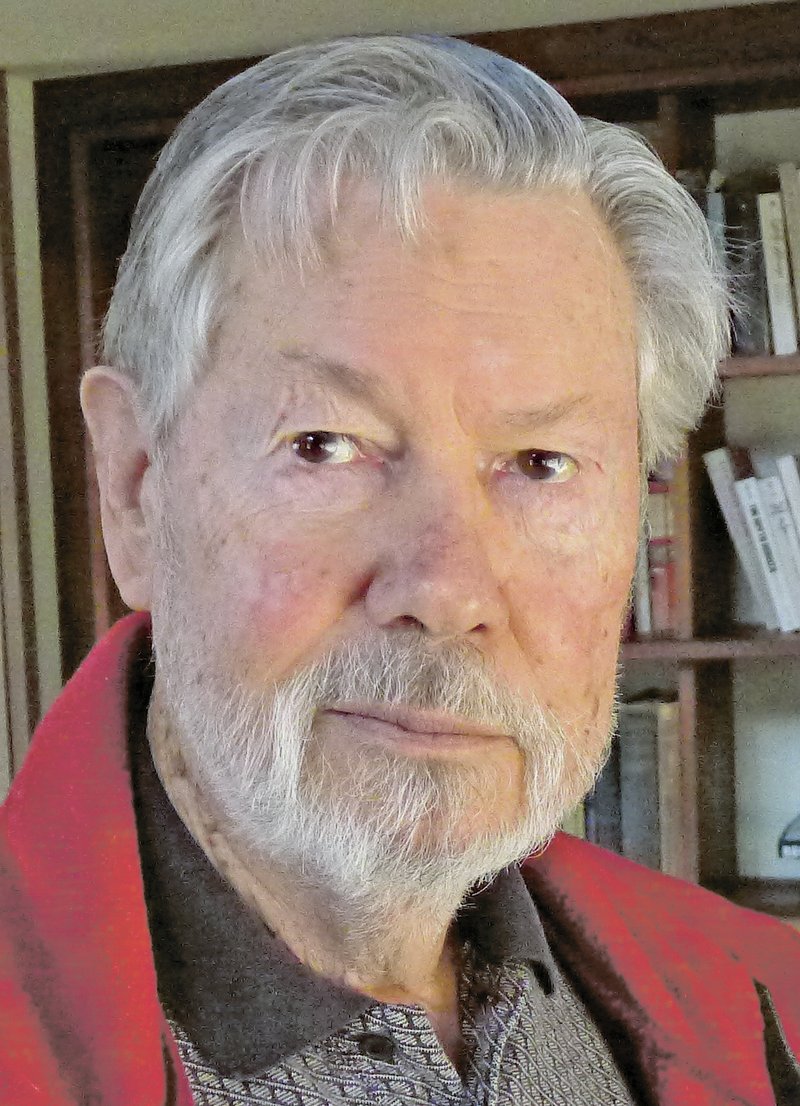FAYETTEVILLE -- The curmudgeons were celebrating Jack Marr's 88th birthday on Dec. 6.
The small group, known as "the curmudgeon club," meets for lunch every Wednesday at Mermaids Restaurant.
For three months every year, Marr was a year older than his fellow curmudgeon and golfing buddy Roy Reed.
On Dec. 6, Reed asked Marr, "How much longer do you think we'll live?"
Three days later, Reed had a serious stroke and died on Dec. 10.
"Was that a premonition?" Marr asked Tuesday during a funeral for Reed at St. Paul's Episcopal Church in Fayetteville.
Reed was a reporter for the Arkansas Gazette and The New York Times. He covered the civil-rights movement in the 1960s, reporting on the Rev. Martin Luther King Jr. and witnessing the "Bloody Sunday" melee when police and a posse beat black marchers with clubs and bullwhips on the Edmund Pettus Bridge in Selma, Ala., on March 7, 1965.
Later, Reed was a farmer, an author and a professor of journalism at the University of Arkansas, Fayetteville.
Reed was a Garland County native who lived in Atlanta, New Orleans and London before moving to Hogeye in 1978 to teach at the university.
About 380 people attended his funeral Tuesday.
State Sen. Uvalde Lindsey, D-Fayetteville, read a Senate memorial citation honoring Reed.
"Roy Reed's life was fulfilled with a lengthy list of accomplishments and successes in his chosen career as a journalist," Lindsey said.
He said Reed had a "sincere interest in people of all races" and "uncanny good fortune for being in the right place at the right time."
"Roy, of course, was one of journalism's giants, so much so that even though we didn't deserve having him on the university faculty, he just wanted to be here. Arkansas was home," said Gerald Jordan, associate professor of journalism at the university in Fayetteville.
"Mr. Reed was a towering figure to a generation of journalists, but especially to those of us who were lucky enough to study under him," said Donna Lampkin Stephens, associate professor of journalism at the University of Central Arkansas.
Stephens said she met Reed when she came to the university as an aspiring journalism student in 1981.
"He was serious, dignified and kind," she told the funeral crowd. "From that day, I cannot recall a time when I didn't know he was there for me, as a teacher, adviser, fellow journalist, job reference, historian and dear, dear friend."
Terry Jones, a former Washington County prosecutor, said Reed became interested in the life of a prosecuting attorney in the rural South, so he began interviewing Jones weekly in 2014 for a book. After four or five months of interviews, and "forcing" Jones to dig through thousands of newspaper clippings he had saved throughout his career, Jones said he didn't know who was supposed to write the book.
"But I knew one thing," Jones said. "I had been thoroughly Royed."
Jones said he's working on that book, slowly, which is the way Reed normally liked to do things.
"I can't conceive of heaven or hell as described by the screaming evangelists that came to my small Kentucky church when I was a boy," Jones told the crowd. "But ... if the life of a star billions and billions of miles away can make it into my eye to delight my brain, I do not think that a human soul can expect anything less miraculous. So Roy, off on your journey. I know you're getting ready to write about it. As for that book, I'm working on it, but I will not be hurried."
Reed's ashes were interred in the St. Paul's columbarium in a family service prior to the public service Tuesday.
Metro on 12/27/2017

